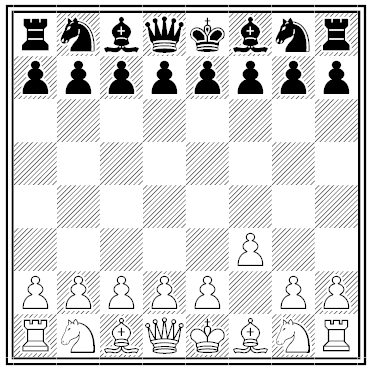
A puzzle from John Beasley’s The Mathematics of Games (2006): Black has just moved. What is the smallest number of moves that can have been played in this game?
| SelectClick for Answer | |
|---|---|
Black can have moved only his knights and his rooks. The knights began on squares of different colors, and a moving knight lands on light and dark squares alternately, so between them the two knights have made an even number of moves (even if they’ve exchanged places). While the knights were abroad the rooks may have shifted back and forth a bit, but they’re on their home squares now and so have made an even number of moves themselves (possibly zero). So Black has made an even number of moves altogether. If Black has made an even number of moves, then so has White. But this presents a problem: White’s knights and rooks have moved an even number of times, but the f-pawn’s position on f3 means that White has made an additional move, giving an odd total. In order to make the total even we must find an odd quantity of additional moves that White can have made, and they can’t have been made with pawns, knights, or rooks. The simplest solution is that the king has made seven moves, e.g., e1-f2-e3-f4-g4-g3-f2-e1. So the answer is that each player has made at least eight moves: The shortest game that could produce the position above with White to play begins with 1. f3 and then the white king makes seven moves while Black marks time with his knights (and perhaps his rooks).
| |
